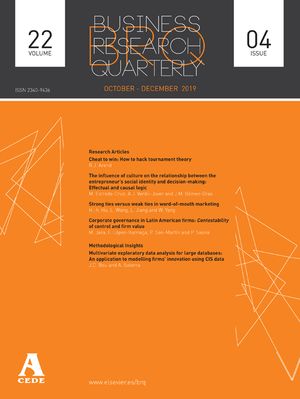La reciente normativa que requiere desde 2002 la revelación de los honorarios facturados por las firmas de auditoría a sus clientes, indicando los correspondientes a cada servicio prestado, nos ha brindado la oportunidad de abordar un análisis empírico del nivel y composición de los honorarios para el caso español. La cuestión es relevante porque se aportan nuevas evidencias acerca del mercado de servicios profesionales y del grado de competitividad existente. Así, analizamos sus factores explicativos y la posible determinación conjunta de los honorarios por servicios de auditoría y consultoría, y documentamos cómo el conocimiento adquirido en unas actividades es aprovechado en otras (knowledge spillovers), sin que sea posible conocer en qué modo las economías de alcance obtenidas se distribuyen entre auditor (en forma de mayores beneficios) y cliente (en forma de menores precios), lo que dependerá del grado de competencia de este mercado. Adicionalmente, no hemos obtenido evidencia de precios introductorios iniciales de choque (lowballing). Finalmente, los honorarios facturados por servicios de consultoría no son diferentes entre las grandes firmas, pero los devengados por trabajos de auditoría son significativamente menores en las pequeñas, no existiendo en este caso estrategias de precios distintas entre las cuatro grandes. Nuestros resultados son robustos y se mantienen con el empleo de diferentes modelos y especificaciones alternativas.
The new regulation requiring the disclosure of audit fees split by type of services since 2002, has allowed us to undertake an empirical analysis of the level and composition of the fees in the Spanish market. Our analysis provides new relevant evidence on the market for professional services and the existing level of competition. We analyze their determinants as well as the possible joint assessment of the fees for audit and consulting services. Our results show that knowledge creation in certain activities is applied to create value via the provision of other services (knowledge spillovers). However, it does not seem possible to characterize the ways in which economies of scope are shared between the auditor (in terms of higher revenues) and the client (in terms of lower prices), as this appears to depend on the extent of competition in the market. Furthermore, we could not obtain evidence documenting the existence of lowballing. Finally, we found that the fees charged for consulting services do not differ significantly across big audit firms (who seem to have similar price strategies), but audit fees are significantly lower in the case of small firms. Our results are robust in the presence of different models and alternative specifications




